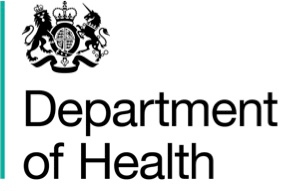
The Department of Health consultation on the regulation of Medical Associate Professionals (MAPs)
The Department of Health (DH) has published its long-awaited consultation on the regulation of physician associates (PAs) as part of the Medical Associate Professionals (MAPS). The consultation, announced by the Secretary of State Jeremy Hunt, outlines the Government’s recommendations regarding the regulation of four professional groups – PAs, physicians’ assistant (anaesthesia) (PA(A)), surgical care practitioners (SCP), and advanced critical care practitioners (ACCP). In order to inform your decision making before filling in the consultation form, we advise finding out more information on each of these roles through the Health Education England (HEE) website.
The FPA view
The Faculty of Physican Associates (FPA) encourages all of our members, the PA profession as a whole, and those working with PAs, to respond positively to the consultation. There is power in numbers – and the more of us there are submitting evidence to the consultation, the more convincing our case will be. Please submit your consultation response through the Department of Health website before 22 December 2017.
The FPA is delighted that the PA profession, advocates of the profession, and others invested in the NHS and provision of high quality care for patients, now have the opportunity to contribute in a meaningful way to influence the decision making of the DH.
The FPA has called for regulation of physician associates since its establishment at the Royal College of Physicians (RCP) in 2015, and in its previous form as the UK Association of Physician Associates (UKAPA) over many years. We warmly welcome this positive step from the DH on the road towards introducing statutory regulation for PAs.
Regulation will:
- provide legal authority and accountability
- provide a framework for patient safety
- set professional standards for behaviour, competence and education, ensuring fitness to practise. The FPA already has measures in place to ensure this as best as possible within the current framework by overseeing the Physician Associate Managed Voluntary Register (PAMVR) – however these matters cannot be legally enforced without statutory regulation.
- protect the PA title, ensuring that anyone who hasn’t been properly trained, educated and qualified is not able to work as a PA
- enhance professional credibility and national recognition of the role
- enable PAs to work to the full scope of their roles, easing the workload burden on the medical team, and supporting doctors in the provision of high-quality care to patients.
The number of PAs working in the NHS is set to exponentially expand over the coming years. PA training is medical, closely based on the education and curriculum of doctors. As dependent practitioners, PAs should be held account by similar standards and regulation of doctors. The General Medical Council (GMC) would therefore be the most appropriate regulator for the profession.
At the FPA we are acutely aware of the rising demands for medical treatment in the NHS and other mounting pressures it faces. The PA role has developed to provide more medically trained professionals as additional team members contributing additional generalist skillsets to the workforce. A clear, co-ordinated approach to developing the multidisciplinary workforce is needed in order to effectively plan for the future and continue the provision of safe, accessible and high-quality care for patients. We therefore believe that regulation should be introduced for all MAPs in a timely manner for the benefit of these professions, the patients they serve, and the NHS as a whole.
Information provided by the DH and HEE
Further information and the supporting consultation document and risk assessment of the roles produced by the DH and HEE are available on the DH website. We advise that you read these documents to enhance your own knowledge and experience, before responding to the consultation.
This consultation invites views on the following DH proposals:
- to introduce statutory regulation for PAs
- to seek further evidence on the most proportionate level of regulation for PA(A)s
- to seek views on the position that statutory regulation of the SCP and ACCP roles is not proportionate, and whether alternative options for professional assurance should be considered.
The questions posed by the consultation are:
- What level of professional assurance do you think is appropriate for PAs?
- What level of professional assurance do you think is appropriate for PA(A)s?
- What level of professional assurance do you think is appropriate for SCPs?
- What level of professional assurance do you think is appropriate for ACCPs?
- In the future, do you think that the expansion of medicines supply, administration mechanisms and/or prescribing responsibilities to any or all of the four MAP roles should be considered?
- Which healthcare regulator should have responsibility for the regulation of any or all of the MAP roles?
- Do you agree or disagree with the costs and benefits on the different types of regulation identified on pages 30 to 33 of the consultation document? If not, please set out why you disagree. Please include any alternative costs and benefits you consider to be relevant and any evidence to support your views.
For more information on physician associates please see our page ‘who are physician associates?’
To submit your consultation response, please fill in the form on the DH website before 22 December 2017.

